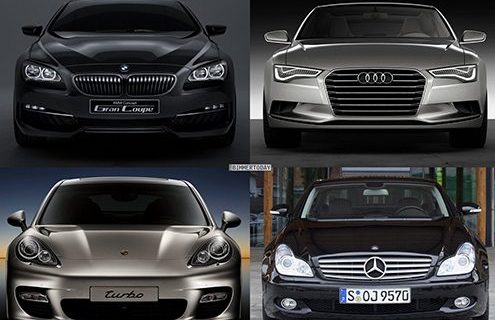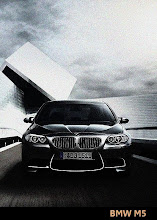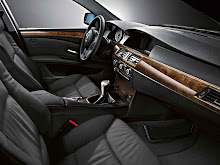As a globally active automobile manufacturer, BMW Group takes responsibility for the environment, as well as for the social interests of employees and society as a whole. BMW Group has been listed in the Dow Jones Sustainability Index since 1999.
The BMW Group is a signatory of the UN Global Compact. The company’s approach to sustainability is guided by this commitment. The Global Compact is the world’s largest global corporate responsibility initiative. It provides a frame-work for businesses that are committed to aligning their operations and strategies with ten universally accepted principles in the areas of human rights, labour standards, the environment and anti-corruption.
BMW Group believes that sustainable mobility must support quality of life and economic prosperity. At the same time, the potential damage to the environment associated with individual mobility must be kept to a minimum.
In recognition of its company strategy orientated to sustainability, BMW Group was awarded the 2006 Excellence Award by the European Foundation for Quality Management.
BMW Group has integrated sustainable development into all areas of the company, covering its social, environmental and economic responsibilities.
The areas in which BMW Group is working to ensure sustainability are shown in the following diagram:
 BMW Group is committed to sustainability in many ways: from its responsibility to the environment and reducing CO 2 emissions, to looking after the needs of its employees and the societies in which the company operates.
BMW Group is committed to sustainability in many ways: from its responsibility to the environment and reducing CO 2 emissions, to looking after the needs of its employees and the societies in which the company operates.Environmental management systems at plants
All BMW production sites adhere to uniform environmental standards. BMW Group manufacturing facilities are either certified according to the international environmental management system ISO14001 or or in full compliance with the European Eco-Management and Audit Scheme (EMAS II). BMW Group was the first major automobile producer to achieve this.
EfficientDynamics
As demands on the world's energy resources continue to rise, it is increasingly important to create cars that are more efficient. For this reason, BMW has introduced its EfficientDynamics programme.
BMW EfficientDynamics is a range of related technologies that reduce fuel consumption and emissions, while at the same time improving performance. The programme is at the heart of BMW's pledge to reduce its average CO 2 emissions in accordance with the voluntary commitment agreed by the European Car Manufacturers' Association (ACEA). In line with the voluntary commitment, BMW is on target to reduce emissions across its vehicle range to 140g/km (a reduction of approximately 25% compared to 1998) by 2008. In achieving this, BMW is helping to shape the future of driving by pioneering the ultra-efficient engines of tomorrow.
|
| Clear Energy |
The H2ague Project is committed to a number of social projects worldwide, including The H2ague Project, which aims to support a renewable hydrogen economy as a long term solution to world energy and increasing environmental problems.
Mobility needs energy. To make sure that energy continues to be available in the future too, the BMW Group is committed to developing innovative solutions for tomorrow's mobility –and this will also safeguard the future of sheer driving pleasure.
|
|
Road Safety As an automotive company, BMW Group is concerned with the safety of all travellers and for this reason, one of the key aspects of the company's social commitment for many years has been its involvement in the promotion of traffic safety projects all over the world. |
|
|
BMW's Social Responsabilty spendings. |
There are 70 full time employees working in the environmental affairs division of BMW Group. At all locations, environmental management systems that far exceed legal requirements are in place to ensure environmental protection at the workplace.
In 1999 BMW Group was the first carmaker in the world to uniformly certify all its production sites to international environmental management standards.
In total, BMW Group has invested around €20.7 million (Germany only) in 2006 into product related environmental protection.
How BMW is committed to the efforts of reducing CO2 emissions?
The automotive sector has a good record in reducing carbon dioxide emissions. Government figures indicate that between 1990 and 2000 the sector reduced carbon emissions from production facilities by 27 per cent, despite significant increases in output.
The recent reductions in CO2 emissions from road transport have come despite growth in the vehicle numbers and distance travelled. This follows significant improvements in vehicle design and technologies used. The latest available data indicates that average CO2 emissions from new passenger cars in the UK have fallen by 9.7 percent between 1997 and 2004.
The motor industry is committed not only to producing cleaner vehicles, but also to making sure that the whole manufacturing process is as clean and green as possible. New vehicles now use less fuel than ever before as manufacturers make them lighter and more efficient. BMW is a world leader in designing cars for ease of manufacture and assembly. Modern cars are also more recyclable as they are designed to be taken apart and used again more easily.
In addition to the actual products, the automotive sector is also making huge strides in cleaner working practices at plants by introducing new technologies such as cleaner water-based paint shops.
000c63f9-a528-4bf4-820f-73e81d81dda5
1.03.01














